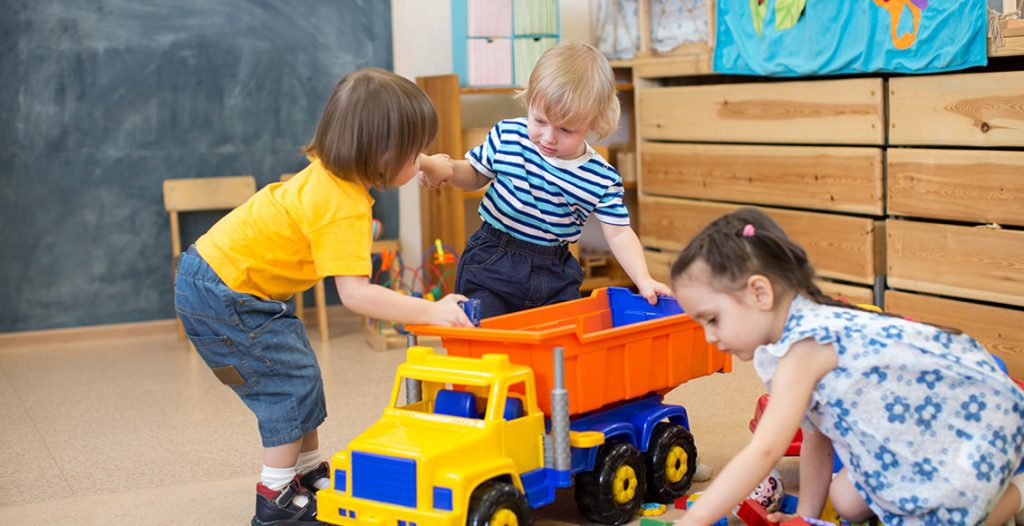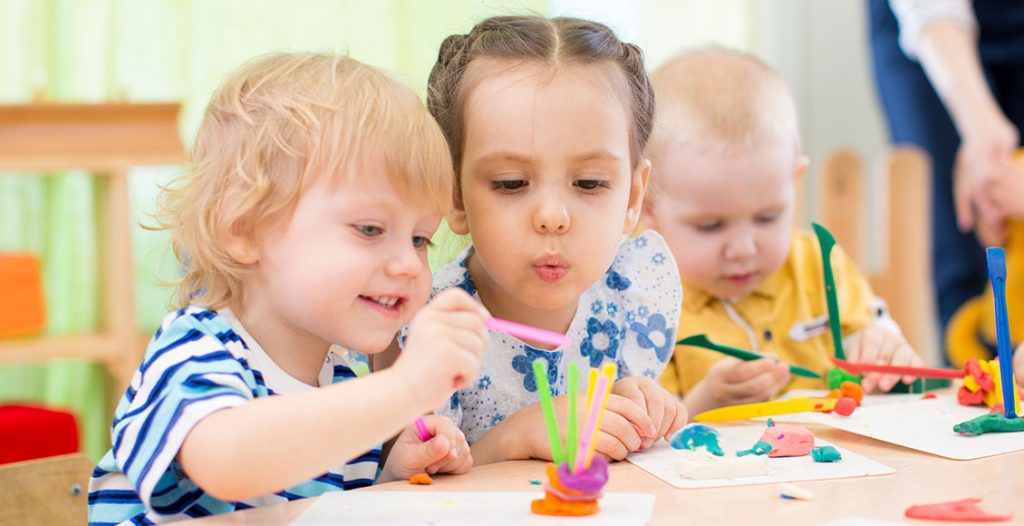Starting out with preschool
What’s the good of sending one’s children to preschool if it is not even compulsory? The list answering this question is indeed a lengthy one – be it support for working parents, a boost in children’s development or, as simple as it is, fun with peers!
Preschool refers to non-compulsory educational programs that precede the actual formation, children are usually between 2 and 5 years old when attending. In the context of this earliest stage of education certain questions are very likely to pop up: Do we overcharge our children when having them attend preschool programs? And is it our over-ambitious society that pushes us to educate children so early on?
The answers to those questions point indeed quite to the contrary: Howsoever the institutions are called around the globe, be it preschool, nursery school, kindergarten or pre-primary school, they are extremely beneficial in terms of child development and on top, the toddlers enjoy the activities in these new fun and pleasant environments a lot.
Preschool can be much more than just day-care drawn on by working parents. The children are engaged in multiple ways and acquire a variety of skills: It starts with first little tasks that they can accomplish on their own, like learning to poor their own juice into their cups, using the bathroom without help or making own small decisions like what and where to play during independent playing periods. This way children gain a better sense of themselves and develop confidence in their actions.
Moreover, preschool presents the first time of intense socializing outside the family. Not only are the children separated from Mommy and Daddy, they are also integrated into a group of peers and learn to get along with others, share, compromise and be respectful.

Beside the social aspect, first educational content is mediated. This must however not be mistaken for seated lecture-style lessons as older pupils know them. Rather the creative and imaginative aspect is much more dominant in the pedagogical approach. Children learn via explorative activities and games. So, the focus is absolutely on fun and appropriate development – which answers the opening questions once more: We do not overcharge children with preschool but support them in a healthy and comforting way.

Finally, preschool ideally prepares children for starting out in compulsory school because children are already confronted with shapes of numbers and letters and therefore have higher pre-reading skills. Also, their vocabulary is more extensive and basic math skills are more advanced. Additionally, they are taught to behave like students which includes aspects like paying attention to a teacher or raising your hand before speaking up.
The decision whether or not to have one’s children attend preschool rests with the parents. If they do so, the right choice can be hard and needs some consideration. In order to facilitate the matter, the following points can be used as a guiding line: These are the location of the institution, so should it be near one’s home or near the workplace, or might there even be one within the company. Next, operating hours are crucial, do you need all-day-care or only early morning hours for instance. Furthermore, there are preschools with differing pedagogical approaches, you can choose religiously oriented centres, international institutes or ones with special teaching philosophies like Montessori. In the end, you have to look out for a place you and your child feel comfortable with and that offers it the space to happily and freely develop in its own way.
Author: Andrea Ruscher
References
[1] Parents (2018). Toddlers and Preschoolers. [online] Available at: http://www.parents.com/toddlers-preschoolers/
[2] International Bureau of Education (2018). Early Childhood Care and Education. [online] Available at: http://www.ibe.unesco.org/en/topics/early-childhood-care-and-education
